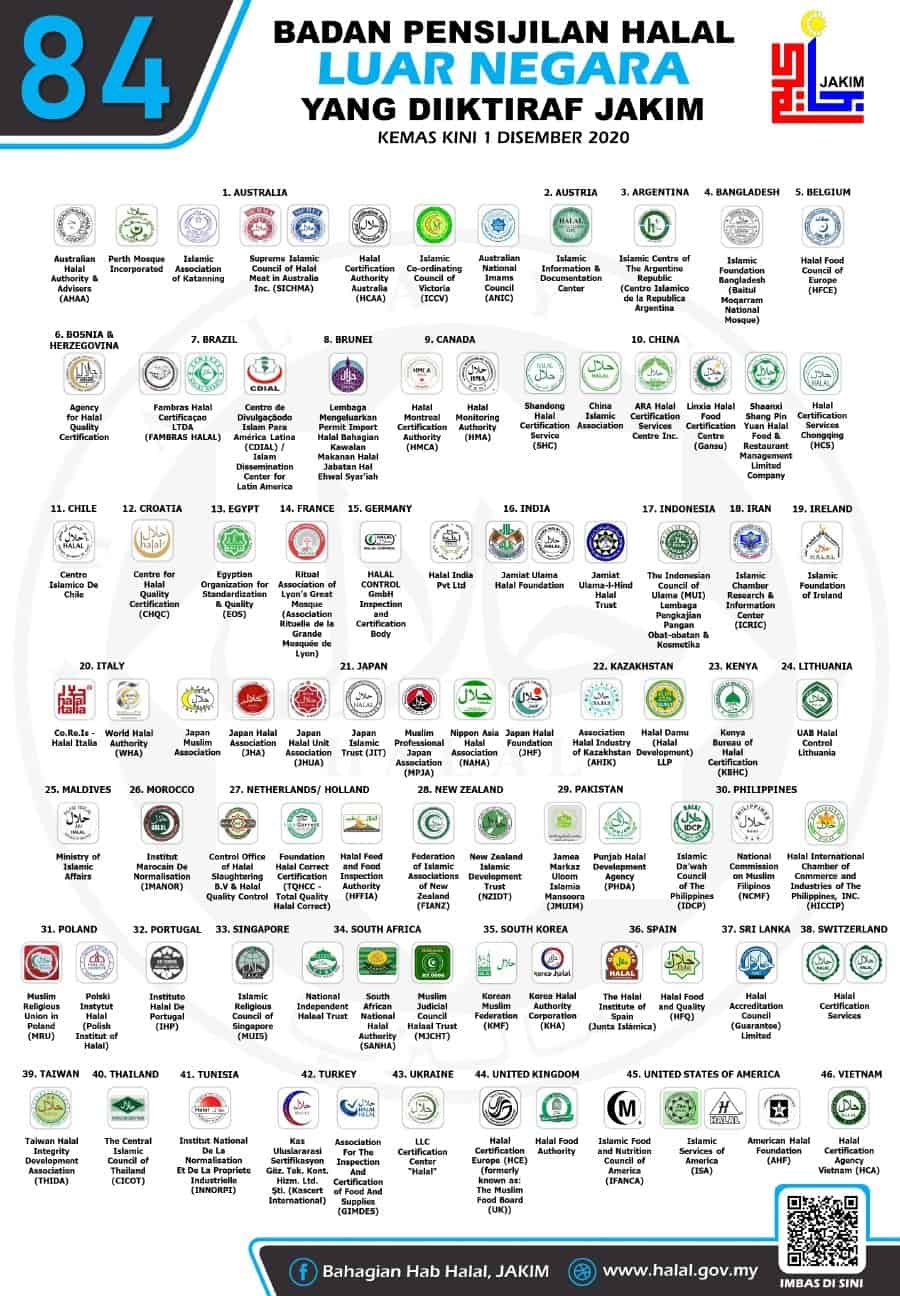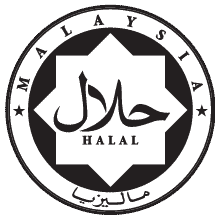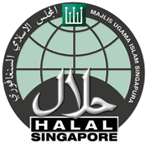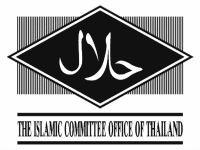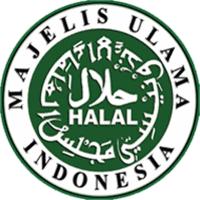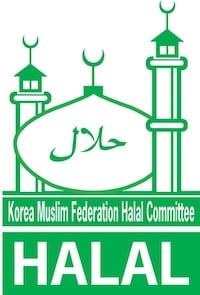The Halal logo has become a ubiquitous symbol in the food industry, appearing on products from cereal boxes to chicken wings. It is both an assurance of quality and a certification that a product meets Islamic religious standards—a guarantee of freshness, safety, and taste. But what exactly does it mean? How did this icon come about, and why is it so crucial for Muslims worldwide?
The demand for halal-certified foods continues to grow in today’s globalised economy. As such, companies increasingly recognise the need to meet and exceed these religious requirements to remain competitive. This article examines how the halal logo came into being, its implications for businesses operating within the food sector, and why understanding the concept of halal is essential if we are to continue supplying safe and quality meals to customers worldwide.
From identifying which ingredients are permissible under Islamic law to ensuring cleanliness throughout production processes—the importance of having a recognisable signifier like a logo can never be overstated. The Halal Logo provides peace of mind for Muslim consumers looking for accurate information regarding their dietary needs. By exploring its origin story and highlighting its significance in our current market landscape, this article hopes to provide insight into the meaning behind one of modern society’s most iconic symbols.
What Is A Halal Logo?
A halal logo is an essential icon to many people, for it signifies a commitment to Islamic law. It’s like a badge of honour that reflects the quality and trustworthiness of products or services offered by businesses, much like how the Good Housekeeping Seal of Approval has come to represent excellence in consumer goods.
The term ‘halal’ refers to anything permissible according to Islamic law. This applies to food and other aspects of life, such as financial dealings, personal hygiene and clothing. For example, when you see a logo featuring the words “Halal Certified” on a product label or advertisement, it means that all ingredients contained within have been checked against strict criteria set out by religious leaders. In addition, animals used in the production process must be treated humanely and slaughtered according to ritual requirements.
Halal certification can benefit companies looking to expand their customer base into Muslim-majority countries. A symbol of faith and assurance from producers and consumers alike – Halal logos offer peace of mind about what goes into our lives and provide an opportunity for businesses worldwide to show their respect for Islam.
Halal Logo Around The World
International
International halal logos are an essential part of the Muslim faith. These logos represent foods deemed suitable for consumption according to Islamic law, known as Halal. This designation verifies that the food has been produced according to religious standards and can be safely consumed by Muslims worldwide.
The use of international halal logos is increasing rapidly due to their easy recognition across cultures and nationalities. As more companies become aware of this important symbol, they are increasingly introducing labelling on products indicating that they meet dietary requirements for those who follow Islamic law. In addition, many organisations now offer certification programs designed to help ensure compliance with these guidelines when producing goods and services.
By displaying international halal logos on products or packaging, businesses can demonstrate commitment to meeting religious requirements without relying solely on verbal communication or lengthy customer instructions. This ensures that customers receive accurate information about what they consume and trust the company.
Malaysia JAKIM
While international halal logos can be seen around the world, there is one specific logo that stands out in Malaysia. JAKIM’s halal logo is widely recognised and represents symbols of safety, quality assurance, and trustworthiness in food products – all of which are important for consumers.
The halal logo refers to the logo issued by JAKIM / JAIN / MAIN and contains:
- An eight-cusp star at the centre of a circle.
- The Arabic word – “halal” is at the centre of the star.
- The word “HALAL” is in the Roman alphabet below it.
- The word “Malaysia” is written in the Roman alphabet and “halal” in Arabic within the circle of the logo.
- Two small five-cusp stars are positioned to separate the Roman alphabet from the Arabic word mentioned.
JAKIM or Jabatan Kemajuan Islam Malaysia (Department of Islamic Development Malaysia) issues this particular halal certification after a careful review process has been conducted.
This includes assessing ingredients used, production methods employed, and other relevant details about the product’s lifecycle. It also ensures that no haram materials have come into contact with the item being certified during its manufacture or preparation.
The Malaysian government takes great pride in protecting its citizens from consuming questionable items. Promoting only those foods with JAKIM’s certification mark creates an extra layer of security for them.
Through this rigorous standardisation procedure imposed by JAKIM, consumers can rest assured they will always be protected.
Singapore MUIS
The Singapore MUIS is the absolute pinnacle of halal certification! It’s the crème de la crème, the cream of the crop, and it sets a standard that cannot be matched. No other organisation even comes close to matching its level of dedication to ensuring genuinely halal products for consumers in Singapore. Here are five reasons why it stands out from all others:
- Its stringent requirements for food ingredients and preparation processes ensure that only certified halal items make their way into stores or onto menus.
- The rigorous process includes regular inspections and audits of certified vendors to maintain quality assurance.
- Companies wishing to obtain certification must pay a fee depending on their size — this helps offset costs associated with maintaining standards and expanding services.
- Those using MUIS-certified products can proudly display the official logo, reassuring customers that they’re getting genuine Halal goods and services.
- There exists an extensive network of international contacts which allows them to monitor global trends when assessing applicants’ requests for certification.
The Singapore MUIS puts immense effort into ensuring that Muslim consumers in Singapore receive nothing but top-notch halal products and services every single time — something no other group can boast about doing so consistently.
It goes above and beyond what any comparable body does by providing thorough oversight over each product it certifies, giving peace of mind to Muslim consumers everywhere in the world.
Thailand CICOT
Have you ever wondered what a halal logo looks like in Thailand? The ‘halal logo’ is used to show that the product or service meets the Islamic dietary requirements of Muslims. In particular, it ensures that products are made with ingredients following these rules and regulations. So, how does this apply to Thailand?
The answer lies with the Thai Halal Standards Institute (CICOT). Established by the Ministry of Commerce in 2004, CICOT works towards providing certification for halal food products in Thailand. They also offer education about halal standards throughout the country. This includes training sessions at schools and universities and talks and seminars conducted by experts from fields such as medicine, nutrition and religion.
Through this organisation, companies can have their products certified as meeting Muslim dietary requirements if they adhere to specific procedures and criteria set out by CICOT. Therefore, when people see the ‘halal logo’ on Thai-made products, they know that those items have been officially approved by CICOT and meet all requirements according to Islamic law.
Indonesia MUI
Indonesia’s Majelis Ulama Indonesia (MUI) is the country’s Islamic authority, responsible for certifying halal food and other products. Established in 1975, this government-sanctioned body has been tasked with ensuring that food prepared or produced by Indonesian companies meets all of the requirements of Sharia Law.
The MUI offers several halal certification marks to identify compliant products and services. The use of these symbols helps consumers easily recognise certified items from non-certified alternatives, thus making it easier to adhere to their religious beliefs when buying.
Products certified by the MUI must meet several criteria, including sourcing ingredients that don’t contain alcohol or any form of pork derivatives, following stringent manufacturing processes designed to preserve product purity, and employing only staff who have undergone rigorous training on maintaining hygiene practices within production facilities. With its strict standards, the MUI assures that those who wish to practice Islam can trust that what they consume is permissible according to traditional Islamic regulations.
Korea KMF
Korea KMF, or the Korean Muslim Federation, is a well-known halal certification body in South East Asia. They have been actively involved in certifying food and beverage products as compliant with Islamic law since their inception in 2000. The KMF logo assures producers and consumers that the product has met all Halal certification requirements.
The KMF’s mission statement is “to serve humanity by promoting quality products through our expertise and trustworthiness”. To meet this goal, they have implemented stringent guidelines on what can be certified as Halal. For example, any animal used must have been slaughtered according to Islamic laws. Its meat must be free from blood residue and other contaminants while ensuring no prohibited ingredients are present such as pork or alcohol derivatives.
The KMF also works closely with government agencies to ensure compliance with national food safety regulations and provide information about halal foods available in local markets. Their certification process includes an annual audit of each facility’s production processes, reassuring customers that the products they purchase are safe and compliant with religious dietary restrictions. With their international reach and dedication to upholding high standards, it’s easy to see why the KMF logo is so widely recognised worldwide.
Types of Halal Logo
Vector
The vector logo shines bright and clear, radiating the brilliance of its message. The crisp edges that make up the design indicate a higher power at work – one that is watchful and determined to guide us on our journey. It’s an emblem we instantly recognise: halal-certified foods or products.
This symbol has become a powerful tool for many people around the world who require assurance in their purchases:
- For those seeking reassurance about what is permissible under Islamic law:
- They can quickly identify which foods are allowed and which ones aren’t.
- They can exercise the peace of mind when making decisions related to food consumption.
- For producers, it is also a visual marker of quality control standards they abide by:
- This helps them demonstrate commitment to ethical practices in production processes.
- It is a testament to their high integrity toward customers’ needs and wants.
The halal logo is practical in helping us understand what is permissible according to Islamic law. It also carries an emotional significance, providing comfort and security in decision-making. It tells us that there will always be something to trust and rely on, no matter where life takes us.
Transparent
Could you find a halal vector logo? Looking for one that’s transparent as well? No worries, you’re in the right place! Here we’ll examine why these two elements are essential when creating a quality halal logo.
First of all, having a vector graphic is essential:
- It ensures your logo will look sharp no matter how large or small you make it.
- Vector graphics won’t pixelate at various sizes – they remain smooth and crisp.
- They also guarantee accuracy when working with text since they can scale without losing resolution.
- Plus, vectors are highly customisable, so if you decide down the line to change colours or fonts, this format allows such modifications easily.
Transparency is another key feature of any successful halal logo design:
- Transparency gives you flexibility when placing your logo on different backgrounds by allowing them to show through underneath.
- This helps maintain consistent branding even when placed on coloured images or websites that already have their background designs.
- Transparency makes layering multiple logos more straightforward and simplifies incorporating other design elements like illustrations or photographs around your main mark.
A vector file and transparent background open up endless possibilities for creating an eye-catching halal logo that stands out from the competition!
High Resolution
The high resolution of a halal logo is like a beacon shining in the night, drawing attention to its presence. With such clarity and definition, it is easy to see why this image is so sought. Here are four reasons why an individual or organisation would want a logo with high resolution:
First, there must be consistency when producing materials for marketing or advertising purposes. A crisp, straightforward design will always stand out from competing products or services. Secondly, if the design needs to be printed on physical items like promotional products, t-shirts or mugs, having a higher-quality image ensures that the finished product looks professional. Thirdly, displaying an image online requires adequate resolution to look good no matter what device it is viewed on. Lastly, logos should remain recognisable even when scaled down for smaller applications like business cards.
A great-looking logo can add credibility and help boost your brand’s visibility; finding one with high resolution guarantees you get your desired results every time. Whether appearing digitally or physically, choosing a logo with detail and sharpness gives customers the assurance they are dealing with an established company they can trust.
Usage of Halal Logo
Label
Labelling halal products is essential to ensuring consumers have the information they need to decide what foods and goods suit their religious values. It is a way to provide peace of mind when shopping.
When researching halal food, one of the essential elements is the logo or label on each item. This small detail can be beneficial in deciding which items meet your dietary requirements. Here’s how you can use this logo or label:
- Please read the guidelines: You can start by familiarising yourself with halal according to Islamic law. It could include ingredients like plant-based oils, fish, poultry and dairy products but may also exclude particular meat, alcohol and other animal derivatives.
- Check out certifications: Several well-established organisations certify halal products; these logos should appear clearly on any product. Take time to read through the certification details thoroughly, so you know exactly what you’re buying before adding it to your cart!
- Look for symbols: In addition to official certifications, specific characters, such as crescent moons or stars, are used as indicators of halal compliance that are usually placed prominently across packaging materials. Keep an eye out for these clues too!
Knowing whether a product meets our standards gives us confidence while grocery shopping – and labels help ensure we get exactly what we want without compromising our beliefs.
Sticker
Stickers and labels, while similar in many ways, have distinct differences. The former is more frequently used to make a statement; the latter is often employed for informational purposes. Both are practical communication tools – one conveys messages boldly, whereas the other offers concise information.
A sticker bearing a halal logo can be seen everywhere, from mosques to restaurants and supermarkets. This eye-catching symbol of religious compliance stands out on any product or service it’s placed upon, making it easy for consumers to spot products that meet their dietary requirements without having to read ingredient lists. Stickers also assure product quality – customers know they’re getting what they pay for when they see this recognisable icon.
Unlike stickers, halal labels usually come printed directly onto packaging material such as cardboard boxes and plastic wraps. Not only does this inform customers about its contents at first glance, but it also keeps them informed throughout the product’s life cycle since all necessary details must remain visible until consumed. Labels provide essential data like ingredients list and expiry dates, allowing buyers to make better purchasing decisions while keeping safety in mind.
Benefits Of Choosing A Halal Logo For Your Business
Using a halal logo for your business offers numerous benefits that business owners can take advantage of. For instance, the London-based restaurant ‘The Burger Shack’ recently adopted a halal logo in its branding and marketing materials to target Muslim customers. The move proved successful as the restaurant saw an increase in profits due to the influx of Muslim and non-Muslim patrons who were reassured by the Halal logo on their products.
Apart from broadening the customer base, businesses utilising halal logos also demonstrate commitment towards ethical production standards and certifications which are paramount in food industry regulations. These standards ensure that all ingredients used in the manufacturing process meet specific criteria set out by religious guidelines or governmental agencies like Food Standards Agency (FSA). Furthermore, these companies benefit from increased trustworthiness among consumers since they know what goes into producing quality food without compromising ethical values.
By using a halal logo, businesses respect Islamic beliefs and foster goodwill with potential customers who feel more confident about buying their products, knowing that it meets the required safety and cleanliness standards. Moreover, this strategy helps them stand out from competitors and gain market share in regions where the majority population follows Islam, making it an effective tool for any organisation looking to expand its reach.
Best Practices
You may have considered the advantages of having a halal logo for your business, but what about best practices? It’s essential to understand how to use this symbol correctly and effectively. Coincidentally, some standards you can follow will help ensure your halal logo stands out.
Firstly, ensuring that your halal logo’s shape and size are consistent across all platforms is essential. This means that when it appears on print materials such as flyers, brochures or stationery items, they should all feature an identical design. Hence, people instantly recognise it wherever they see it. Additionally, you’ll want to consider how well it works with different backgrounds – both light and dark colours – making sure its visibility won’t be compromised no matter where you place it.
Moreover, you’ll need to follow any guidelines certifying organisations set regarding using their logos. If you don’t stick within those parameters, your company could face fines or even legal action if you’re found breaching copyright laws. So before going ahead with your project, you should be familiar with these regulations and check that everything is above board. Doing this protects you against potential risks and ensures customers feel confident in dealing with your business, knowing that it meets industry standards.
Conclusion
In conclusion, having a halal logo for your business is highly beneficial. It not only gives potential customers assurance that the products comply with Islamic law but also helps increase profits due to its international recognition. This can be achieved by obtaining certification from reputable organisations such as JAKIM in Malaysia, MUIS in Singapore and CICOT in Thailand. Furthermore, ensuring proper labelling and sticker display on all products is essential.
Getting a halal logo should not be underestimated – it has seemingly magical powers! From greater customer satisfaction to increased market share, it’s clear that having this symbol prominently displayed will undoubtedly bring many advantages to businesses worldwide. In addition, following best practices outlined by the various certification bodies is essential for ensuring compliance and gaining access to more global markets.
Therefore, if you want an edge over your competitors and expand into new markets, get yourself a Halal Logo today! With minimal effort and cost required, why not reap these excellent benefits? So don’t wait – choose a Halal Logo now and witness your success skyrocket like never before!


